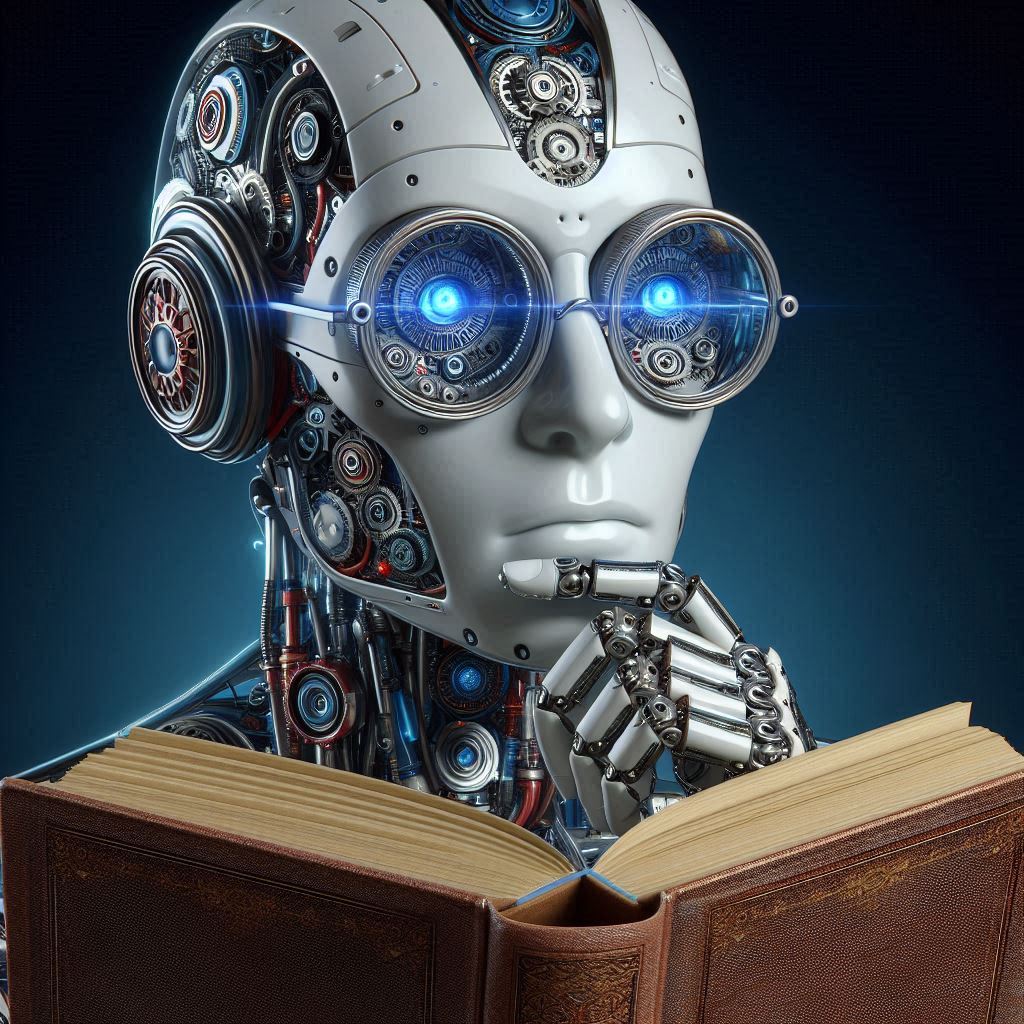As I continue to create new blog entries, I find myself increasingly concerned about the terminology used when describing the capabilities of a model. I struggle with words such as learn, reason, intelligence or hallucination in the context of AI. These terms suggest human qualities that mathematical models, as they exist today, do not possess – and may never possess. To signal my unease, I have until now resorted to placing such terms in quotation marks. However, I have decided to dedicate a specific entry to this issue, reviewing the importance of language in the context of AI.
In my view, the literature on artificial intelligence (AI) has often turned to human terms as an intuitive way of describing a technical and abstract field in language that is easier to grasp. At that point, widespread analogies with human intelligence became established, as well as expressions borrowed from the realm of science fiction.
However, the use of anthropomorphic terms – those that attribute human qualities or traits – can generate confusion, particularly among those without a clear understanding of how AI models work. By using imprecise words, we risk attributing human characteristics to systems that merely perform statistical calculations and algorithmic operations. This confusion may lead many to overestimate the capabilities of AI, believing it to possess intent, understanding, or autonomy, when in reality it is a set of algorithms designed to process information according to specific patterns.
The Impact of language on the perception of AI
Artificial intelligence has advanced significantly, enabling natural language processing, content generation, and the automation of complex tasks. Yet the challenge remains of describing its capabilities accurately without resorting to terms that evoke human attributes. Expressions such as consciousness, reasoning, intelligence or hallucination can be misleading, since AI models lack subjectivity, understanding, and certainly any form of consciousness.
The problem is compounded as AI becomes an omnipresent tool in society, from virtual assistants to decision-making systems in critical areas such as healthcare, justice, security, and even nuclear energy. If anthropomorphic language continues to be used, the public and policymakers may misinterpret both the capabilities and the limitations of these technologies. This could result in misguided regulation, unrealistic expectations, or, conversely, unfounded fears about their impact.
Moreover, the use of terms implying intelligence and consciousness in AI could influence debates on its regulation and accountability. If AI is mistakenly perceived as “thinking” or “making decisions” like a human being, dilemmas may arise about who should bear responsibility in cases of failure or unintended consequences. For this reason, it is crucial to employ precise language that faithfully reflects how these systems actually function.
Alternatives to anthropomorphic language
Many expressions can be reformulated to avoid misinterpretation. Instead of saying that a model reasons, we might say that it processes information according to predefined rules. Rather than stating that it learns, it is more accurate to explain that it adjusts its parameters based on prior data. Similarly, rather than claiming that AI hallucinates when generating incorrect information, we can describe these as inference errors.
Adopting more precise language not only prevents misunderstandings but also fosters more informed debate about the real scope and limitations of AI. This, in turn, promotes a more realistic understanding of its impact on society and facilitates decision-making based on facts rather than on mistaken assumptions.
Conclusions
The progress of AI demands clear and precise communication about its capabilities. Using appropriate language prevents misconceptions and promotes a more transparent understanding of these systems. AI is a sophisticated tool based on mathematical models and algorithms, and describing it accurately is key to its correct interpretation and application. As its use expands, precision in the way we talk about AI will become ever more crucial to ensuring its proper development, implementation, and regulation.
“Precision in language is essential to the understanding of any subject; the way it is described defines the framework of comprehension, which in turn sets the boundaries of its possible uses.”


